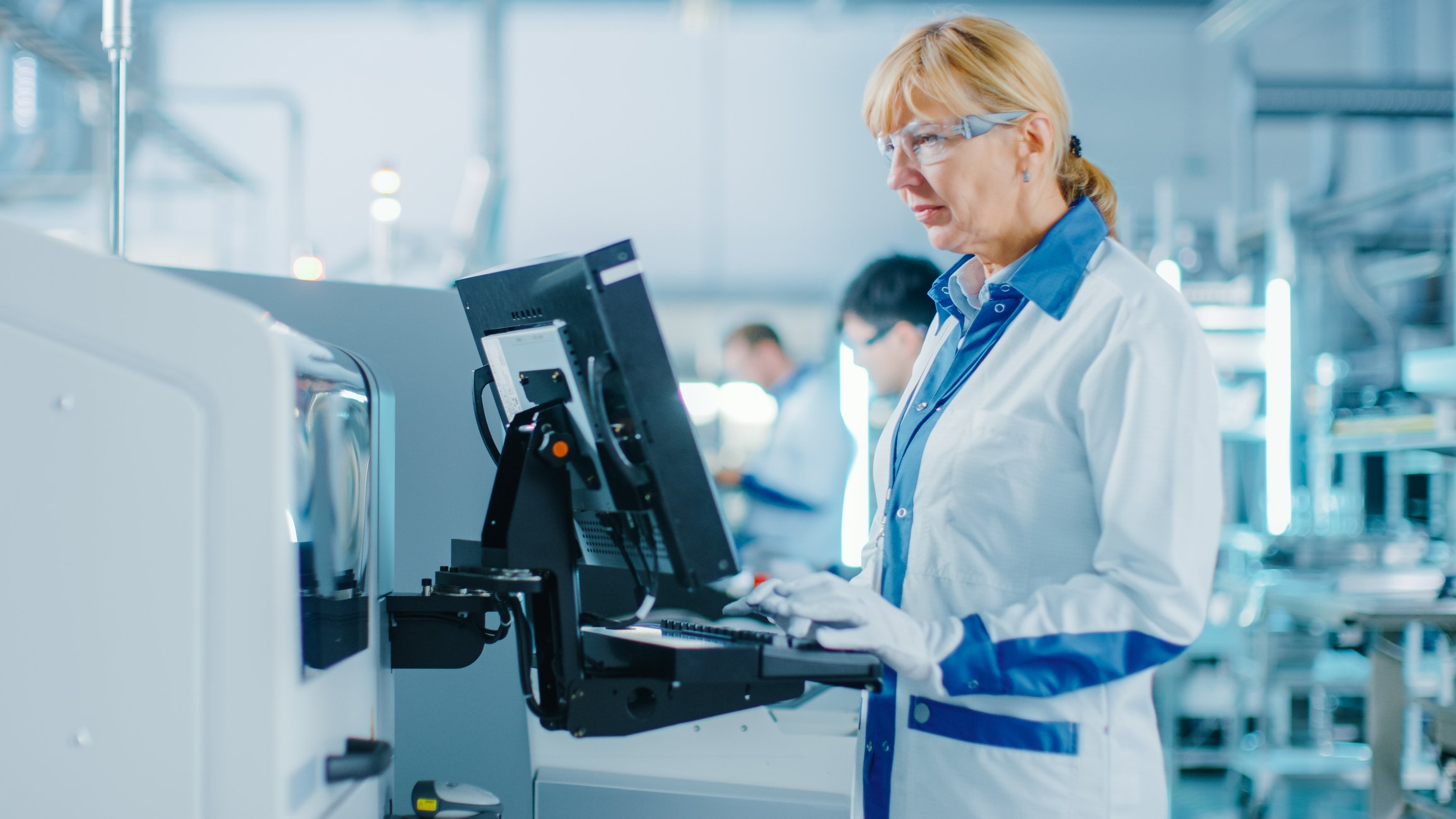What is the role of a pharmaceutical researcher?
A pharmaceutical researcher or pharmaceutical scientist contributes to expanding medical knowledge and drug development through clinical research. Their primary responsibility is to conduct and oversee various pharmaceutical research projects to ensure their successful execution and compliance with regulations. Pharmaceutical researchers are part of a team that includes other researchers, physicians, data analysts, and other stakeholders, working together to ensure the effective and ethical conduct of clinical trials and research studies.
Ready to take the next step?
Apply now for a job as a Pharmaceutical Researcher
Medical Science Liaison
Location: Toronto
Branche: Pharmaceuticals
Expertise: Planning & Testing
Experience: 3 years
Responsibilities Develop and maintain mutually beneficial, peer-to-peer relationships with the scientific community The MSL spends a significant amount of their time on customer-facing activities to develop relationships with external customers including scientific experts, researchers, educators and clinical investigators. The MSL serves as a major medical representative of Lilly for these health care professionals, providing deep and advanced disease state and product information as well as facilitating the work of the scientific expert when it aligns with Lilly's mission. An important aspect of the MSL's work is to connect thought leaders and scientific experts with other Lilly resources (e.g., Discovery, Real World Evidence Scientists, Clinical Research Physicians and Global/Canadian External Research & Development). The MSL is considered a reliable, trusted resource of accurate, up-to-date medical and scientific knowledge requested and desired by their customers. They will respond in a timely way to personal or electronic inquiries with any available information which may include reprints or posters, medical letters, literature citations, access to internal and external experts, slides and other teaching-related material. Continually enhance scientific knowledge The MSL is required to maintain technical expertise within therapeutic areas to engage in scientific discussions with scientific experts. The MSL is expected to engage in continuous learning within the therapeutic areas they represent. They will attend appropriate scientific meetings, conduct routine literature searches, and will be expected to communicate regularly with other MSLs so the entire group benefits from relevant learning. Support the affiliate medical business objectives and cross functional partners The MSL is responsible for interfacing the scientific expert and Lilly resources/internal business partners such as Clinical Research Physicians, Medical Information Associates, Medical Education, Corporate Affairs, and Marketing as requested by the expert. The MSL gathers and reports clinical insights and unanswered questions received from scientific experts to the medical and other cross-functional teams. The MSL job entails not only scientific and customer expertise, but also requires the ability to understand and effectively utilize approved resources, and administrative, procedural and legal requirements to address customer needs and support internal Lilly business.
Pharmacist
Location: Sudbury
Branche: Pharmaceuticals
Expertise: Planning & Testing
Experience: 1 years
Responsibilities Align with all company policies and operating procedures (regulatory/legal requirements) to enable pharmacists to deliver high-level pharmaceutical care. Train and supervise dispensary staff as required. Assist in setting and achieving financial objectives for the company. Assist in maintaining pharmacy inventory. Present a professional image and provide friendly customer service to foster relationship building with our clients. Practice pharmacy within the College's Scope of Practice and guidelines for providing pharmaceutical care. Ensure that narcotics are properly received and recorded at the dispensary. Participate in cycle counting and reconciling of inventory as necessary. Ensure current and accurate patient profiles for all patients are maintained. Perform technical, therapeutic and electronic MAR checks of all medication entries, ensuring detailed documentation in paperless Kroll meets standard of practice in accordance with professional / legal requirements. Provide, document, and bill all pharmaceutical interventions/opinions/services as appropriate. Minimize medication incidents according to company policies and procedures. In the event of a medication incident follow protocol for reporting and resolving. Participate in continuous learning activities and share relevant takeaways with other staff Document patient counselling in Kroll for all prescriptions as required by provincial regulations. Assist in ensuring timely and accurate completion of third party processing, billing, re-submissions, and reporting. Protect patient privacy and confidentiality in accordance with regulations. Align with all federal and provincial pharmacy regulations. Commitment to promoting a workplace of inclusiveness and belonging
Senior Manager Pharmacy Operations
Location: Sudbury
Branche: Pharmaceuticals
Expertise: Planning & Testing
Experience: 3 years
Responsibilities Lead and motivate the team to achieve aggressive operational/performance goals for the site and develop organizational talent. Provide effective leadership around managing and implementing change and consistently meet or exceed performance objectives. Improve workforce utilization within existing departments and processes. Schedule stability that allows for maximum return on efficiencies. Ability to delegate responsibility and create a culture of teamwork, to promote continuous improvement and open communication where all employees become more engaged to better the entire organization Positively communicates business processes, vision and strategy to all employees and is seen and acts as a leader locally Assess team and colleague capabilities and provide/aid in coaching to create a culture of continuous process and performance development Align operational performance goals for the site and conduct regular staff meetings to address concerns Conduct three-month and annual performance appraisals and wage reviews in consultation with the Human Resources department. Engage in proactive recruitment efforts based on current and foreseeable staffing requirements and ensure proper orientation and training is provided for new hires. Work with Human Resources to administer work policies and procedures, including attendance, breaks, vacations, incident reports, conflicts, sick leave, and leaves of absence. Ensure staff understand and adhere to company policies and, if necessary, take appropriate action for any violations. Ensure staff present a professional image and provide friendly customer service to foster relationship building Overall accountability for the day-to-day management of pharmacy operations Overall accountability for all provincial and federal requirements and regulations Achieve established plans and budgets Ensure prescriptions are processed in accordance with professional and legal requirements. Ensure appropriate billing processes to minimize third party payor audit risk Ensure patient/resident confidentiality and privacy is protected. Ensure narcotics and controlled drugs are properly received, dispensed, recorded, reconciled and reported. Maintain adequate inventory levels of all pharmaceuticals using inventory control systems to guard against "out of stocks" or "overstocks". Ensure proper storage and security of pharmaceuticals. Monitor expired inventory and ensure proper handling of these items to minimize financial loss Maintain proper patient records according to regulations Ensure invoices/packing slips are checked prior to forwarding to Accounts Payable. Conduct quarterly "Site Certification Audits" to ensure adherence to regulatory and standard process requirements Recommend, implement, and drive continuous improvement, activities through implementation of change management process, and standard methodologies Responsible for ongoing safety and efficacy of all finished products as well as the implementation and respect of Health and Safety policy and requirements Maintain adequate operations and office supplies. Handles issues around risk management, shipment delays and customer dissatisfaction to prevent difficult situations from happening in the future Regularly conduct review of Profit and Loss Statement; focusing on Revenue, Gross Profit, Business expenses and bottom line business profitability to ensure they meet and exceed budgeted plans. Responsible for developing and implementing business action plans to meet the company goals and developing corrective action plans based on deficiencies identified in Profit and Loss statements Participate in developing budgets for operations requirements, including material, labour, and equipment Work to improve gross margins and proper product pricing Building and leading diverse teams that foster a workplace of inclusiveness and belonging
Medical Science Liaison
Branche: Pharmaceuticals
Expertise: Planning & Testing
Experience: 3 years
Responsibilities Establish and maintain relationships with key thought leaders, regional advocates, healthcare organizations, professional societies and government contacts. Provides accurate and up-to-date scientific information that supports the company's product and disease strategies Builds and maintains rapport with medical professionals and their clinic staff Represent Allergan at national and regional scientific meetings and professional congresses. Collaborates with Medical Advisor in the development and coordination of Allergan sponsored symposia and speaker's bureau Identify and develop advocates for participating in Allergan sponsored clinical trials, scientific symposium and speaker bureau and advisory boards. Follow-up on unsolicited investigator-initiated research proposals and publication opportunities. Assist in training sales and business personnel. Develops territory routing that effectively supports the medical information needs of the assigned geography Maintains effective budgetary control of medical expenses Completes administrative responsibilities, as required, on time Carries out responsibilities in accordance with the organizations, federal and provincial laws and regulations Knowledge Health Canada (HC), Food and Drug Administration (FDA) current Good Manufacturing Practices (cGMP), PAAB, Rx&D, PMPRB and other regulatory requirements. Public speaking, scientific story telling and presentation methods and techniques. Pharmacology and pharmaceutical principles, practices and their application. Principles of mathematical and statistical analysis in clinical studies
Regulatory Affairs Manager
Branche: Pharmaceuticals
Expertise: Communications & Distribution
Experience: 4 years
Key Responsibilities Lead and execute Canadian regulatory activities across clinical development and marketed products, ensuring compliance with Health Canada requirements Prepare, review, and submit clinical and lifecycle regulatory filings, including variations, labeling updates, and post-approval submissions for innovative drugs Serve as a primary regulatory contact for Health Canada interactions, managing questions, clarifications, and follow-up during review cycles Provide regulatory guidance and oversight to supporting regulatory resources to ensure high-quality, timely deliverables Collaborate with cross-functional stakeholders including Clinical, Medical, Quality, CMC, and Global Regulatory teams to align regulatory strategy and execution Review promotional and non-promotional materials to ensure regulatory compliance and consistency with approved labeling Maintain accurate regulatory documentation and records within internal systems in accordance with SOPs and regulatory standards Support continuous improvement of regulatory processes and ways of working
Senior Manager, IT
Location: Saint-Laurent
Branche: Information Technology
Expertise: IT & Shared Services
Experience: 0 years
Responsibilities Develop and execute the Canada IT roadmap in alignment with global IT strategy. * Represent IT in executive leadership forums and lead the country IT council. * Ensure compliance with cybersecurity, data privacy, and regulatory requirements. * Oversee IT operations, infrastructure, applications, and service delivery. * Lead and support a lean local IT team comprised of employees and contractors. * Act as the primary IT business partner for Canadian business units and corporate functions. * Translate business priorities into structured IT programs, projects, and initiatives. * Build business cases, support investment decisions, and prioritize IT resources. * Collaborate with regional and global IT teams to ensure solution integration and adherence to corporate standards. * Support commercial and manufacturing operations in transformation and automation initiatives.
CMC Regulatory Consultant
Location: Hamilton
Branche: Pharmaceuticals
Expertise: Planning & Testing
Experience: 4 years
Responsibilities Serve as the CMC regulatory point of contact for global Health Authority Questions (e.g. FDA, EMA, MHRA, PDMA, other regions as applicable). Train on the company's ERV/Veeva Vault system and manage HAQ responses within the ERV system Coordinate HAQ response development across internal technical teams. Track HAQs, response timelines, commitments, and dependencies to ensure on-time, high-quality submissions. Interpret and apply global/regional CMC regulatory guidelines and regulations. Review SME-drafted HAQ responses for regulatory appropriateness, clarity, consistency and alignment with regional CMC expectations. Extract and summarize scientific information from development reports and identify details required for regulatory submissions. Organize data to support the group's function with answering questions, information request from regulatory agencies such as the FDA, Health Canada or EMEA (including relevant country specific authorities). Advise SMEs on how to frame technical data and rationales to meet Health Authority expectations.
Regulatory Affairs Manager
Location: Ontario
Branche: Pharmaceuticals
Expertise: Planning & Testing
Experience: 4 years
Key Responsibilities Lead and execute Canadian regulatory activities across clinical development and marketed products, ensuring compliance with Health Canada requirements Prepare, review, and submit clinical and lifecycle regulatory filings, including variations, labeling updates, and post-approval submissions for innovative drugs Serve as a primary regulatory contact for Health Canada interactions, managing questions, clarifications, and follow-up during review cycles Provide regulatory guidance and oversight to supporting regulatory resources to ensure high-quality, timely deliverables Collaborate with cross-functional stakeholders including Clinical, Medical, Quality, CMC, and Global Regulatory teams to align regulatory strategy and execution Review promotional and non-promotional materials to ensure regulatory compliance and consistency with approved labeling Maintain accurate regulatory documentation and records within internal systems in accordance with SOPs and regulatory standards Support continuous improvement of regulatory processes and ways of working
What do pharmaceutical researchers do?
In this role, pharmaceutical researchers perform several essential tasks to facilitate successful pharmaceutical science. They collaborate with medical professionals, principal investigators, and other team members to define research objectives and design appropriate research protocols. Additionally, they work closely with regulatory authorities to obtain necessary approvals and ensure compliance with all relevant laws and guidelines governing pharmaceutical research.
They are responsible for recruiting and enrolling study participants, making sure that the appropriate target population is included. Maintaining accurate and organized records, managing data collection and analysis, and addressing any data-related issues that may arise during the study are also part of their responsibilities.
Moreover, pharmaceutical scientists need to lead the monitoring and auditing of research sites to ensure data quality, accuracy, and adherence to good clinical practice (GCP) standards. Implementing safety measures and conducting risk assessments are vital to ensuring patient safety throughout the research process.
Staying updated with the latest advancements in pharmaceutical research methodologies, technologies, and regulatory requirements is essential. By integrating cutting-edge practices, they can optimize innovation and success of research projects in the pharmaceutical field.
What are the required skills for a pharmaceutical researcher?
pharmaceutical researchers need a variety of skills. Strong leadership and project management abilities are essential for effectively coordinating and motivating teams throughout the research process. Excellent communication skills are also necessary for facilitating collaboration between team members, investigators, and other sector stakeholders. They should be able to communicate complex scientific information clearly and concisely.
In addition, in-depth knowledge of pharmaceutical research regulations, including GCP, and familiarity with the drug development process are vital for ensuring compliance and successful execution of studies. Analytical and problem-solving skills are also crucial for handling challenges and making informed decisions during the research process.
Where do pharmaceutical researchers work?
Pharmaceutical researchers can find job opportunities in various settings, including pharmaceutical companies, contract research organizations (CROs), academic institutions, hospitals, and government agencies. They may also work in specialized research facilities or medical device companies conducting clinical trials for new drugs and treatments.
Common pharmaceutical researcher responsibilities
Conduct and oversee pharmaceutical research projects, coordinating interdisciplinary teams;
Develop and implement research protocols, ensuring compliance with regulations and ethical guidelines;
Work closely with investigators and stakeholders to define research objectives and expectations;
Oversee participant recruitment and enrollment, ensuring the inclusion of the appropriate target population;
Maintain accurate and organized records of research progress, data collection, and analysis;
Perform data quality checks and address data-related issues as they arise;
Ensure patient safety by implementing safety measures and conducting risk assessments;
Monitor and audit research sites to ensure adherence to GCP standards;
Stay informed about the latest advancements in pharmaceutical research methodologies and regulatory requirements;
Communicate effectively with team members, investigators, and stakeholders to facilitate collaboration and project success;
Provide guidance and support to researchers and study coordinators throughout the research process.
Qualifications for pharmaceutical researchers
To become a pharmaceutical researcher, candidates should possess at least a Bachelor's degree in a relevant field, such as pharmaceutical sciences, life sciences, biomedical sciences, or healthcare management. Advanced degrees or certifications in pharmaceutical research or a related discipline are advantageous.
Other essential qualifications include:
- 2-4+ years of experience in pharmaceutical research or related healthcare projects;
- In-depth knowledge of pharmaceutical research regulations, including GCP;
- Strong project management and leadership skills;
- Excellent verbal and written communication abilities;
- Analytical and problem-solving skills;
- Familiarity with the drug development process and research methodologies;
- Ability to work collaboratively with interdisciplinary teams;
- A commitment to ensuring patient safety and contributing to advancements in healthcare through pharmaceutical research.




